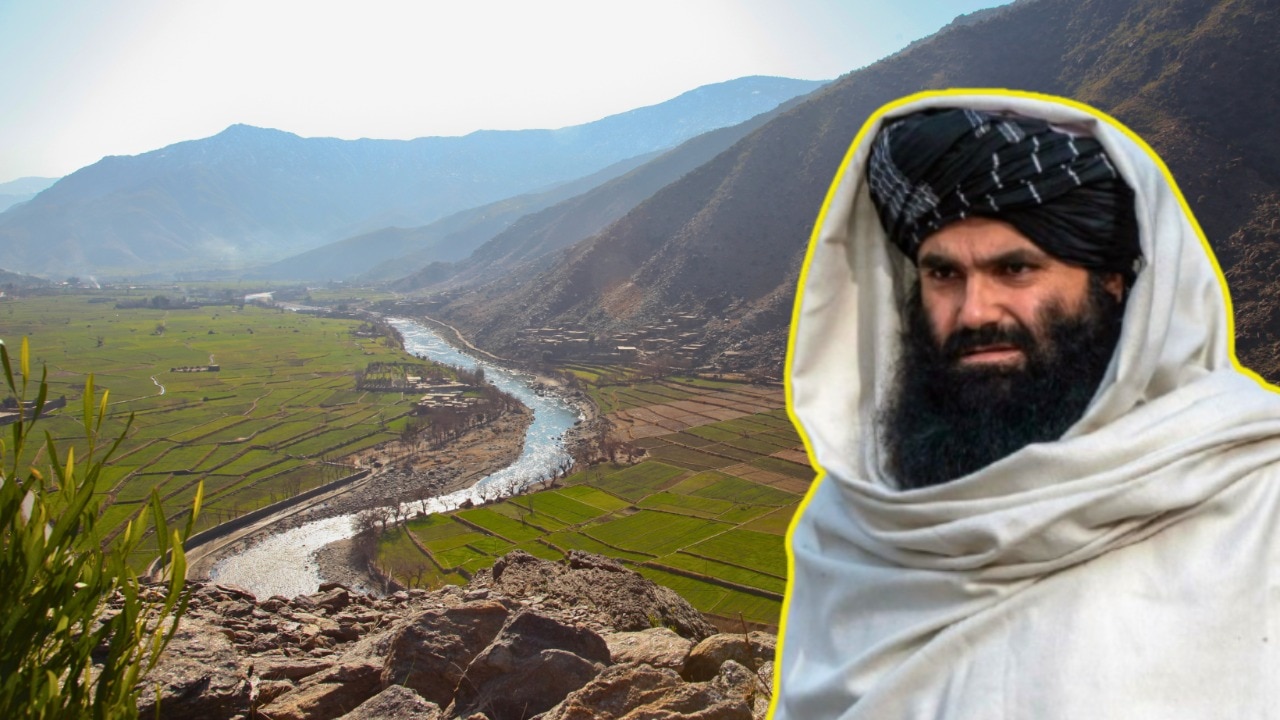Taliban-ruled Afghanistan is planning to build dams and restrict water to Pakistan, according to the Afghan Information Ministry. The order to build a dam on the River Kunar “as fast as possible” came from Taliban Supreme Leader Mawlawi Hibatullah Akhundzada. This public assertion about the “right to water” came just weeks after Afghanistan and Pakistan fought a war that left hundreds dead.
Afghanistan’s decision follows India’s decision about water-sharing with Pakistan. India kept the Indus Waters Treaty, under which it shared water of three western rivers, in abeyance after Pakistani and Pakistan-backed terrorists killed 26 civilians in Pahalgam on April 22.
The Afghan Ministry of Water and Energy said that Supreme Leader Akhundzada had instructed the ministry to begin construction of dams on the Kunar river as soon as possible and to sign contracts with domestic companies, Muhajer Farahi, the Deputy Minister of Information, posted on X on Thursday.
London-based Afghan journalist Sami Yousafzai said, “After India, it may now be Afghanistan’s turn to restrict Pakistan’s water supply…”. The Supreme Leader, according to Sami Yousafzai, “ordered the [water and energy] ministry to sign contracts with domestic Afghan companies rather than wait for foreign firms”.
The 480-km-long Kunar river originates in the Hindu Kush mountains of northeastern Afghanistan, near the Broghil Pass close to the Pakistan border. It flows southward through Kunar and Nangarhar provinces before crossing into Pakistan’s Khyber Pakhtunkhwa, where it joins the Kabul River near the city of Jalalabad. The Kunar is called the Chitral river in Pakistan.
The Kabul river, into which the Kunar flows, is the largest and most voluminous transboundary river between Afghanistan and Pakistan. The Kabul river joins the Indus near Attock and is crucial for the irrigation and other water needs of Pakistan, especially its Khyber Pakhtunkhwa province. A reduction in the water flow of the Kunar river would have a cascading effect on the Indus, thereby, would hit Punjab as well.
“The Kabul and Kunar rivers, which flows into Pakistan, have long been a source of water in Pakistan,” London-based Afghan journalist Sami Yousafzai, posted on X.
This move by Afghanistan follows weeks-long deadly clashes along the Durand Line, its de-facto border with Pakistan, which Kabul calls illegitimate. The Durand Line, drawn by the colonial British, divided the Pashtun homeland into two.
Since coming to power in 2021, the Taliban has prioritised asserting Afghanistan’s water sovereignty. It has accelerated plans for dam construction and hydropower development to harness the country’s river systems for energy generation, irrigation, and reduced dependence on neighbouring countries.
Also, Pakistan and Afghanistan have no formal bilateral water-sharing agreement in place. Islamabad has already raised alarms over the Taliban prioritising Afghanistan’s water sovereignty. Islamabad had earlier warned that such unilateral actions could ignite a full-blown regional water crisis amid Pakistan’s deepening energy and food security challenges.
INDIA-AFGHANISTAN AFFIRM COOPERATION ON HYDROPOWER AND DAM
This decision by the Taliban regime of Afghanistan comes a week after Foreign Minister, Mawlawi Amir Khan Muttaqi, visited India and met his Indian counterpart, S Jaishankar.
“Appreciating India’s assistance in the construction and maintenance of the India-Afghanistan Friendship Dam (Salma Dam) in Herat, both sides also underscored the importance of sustainable water management and agreed to cooperate on hydroelectric projects with a view to addressing Afghanistan’s energy needs and supporting its agricultural development,” the joint statement of both the countries noted.
Over the years, India and Afghanistan have strengthened their hydropower and energy collaboration through landmark infrastructure projects designed to boost water security, irrigation, and electricity generation across the landlocked nation.
Central to this partnership is the Salma Dam (officially the Afghan-India Friendship Dam) completed in 2016 with around $300 million in Indian funding in Herat province, producing 42 MW of power and irrigating 75,000 hectares. This significantly cut Afghanistan’s reliance on imported electricity.
Building on this, the Shahtoot Dam on the Maidan river, a tributary of the Kabul river, was formalised under a 2021 MoU with India’s $250 million commitment to store 147 million cubic meters of water. This will provide clean water to over two million Kabul residents and irrigate 4,000 hectares of semi-arid land for agriculture.
– Ends










